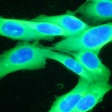
Grail and the University of Oxford on Saturday announced results from the prospective SYMPLIFY study, a large-scale evaluation of a multicancer early detection (MCED) test in individuals who presented to primary care and were referred for diagnostic follow-up because of the suspicion of cancer.
The data were presented in an oral session at the 2023 American Society of Clinical Oncology (ASCO) Annual Meeting in Chicago.
Grail and the University of Oxford said the analysis showed strong performance of Grail’s methylation-based next generation sequencing platform, Galleri, in a symptomatic population of more than 6,000 patients. The data demonstrated the feasibility of using an MCED test to assist clinicians with decisions around the route of referral from primary care, Grail said, adding that the results are planned for publication in the Lancet Oncology.
The SYMPLIFY study enrolled 6,238 patients, ages 18 and older, in England and Wales who were referred for urgent imaging, endoscopy, or other diagnostic modalities to investigate symptoms suspicious for possible gynecological, lung, lower gastrointestinal, or upper gastrointestinal cancer, or who had presented with nonspecific symptoms. Participants provided a blood sample, from which cell-free DNA was isolated and stored until Grail’s MCED test was performed in batches, blinded to clinical outcome.
The test’s predictions (cancer signal detected, and if so, cancer signal origin) were compared with the diagnosis obtained by standard of care procedures. The most frequently reported symptoms leading to referral were unexpected weight loss (24.1%), change in bowel habit (22%), post-menopausal bleeding (16%), rectal bleeding (15.7%), abdominal pain (14.5%), pain (10.6%), difficulty swallowing (8.8%), and anemia (7.1%). Within the study, 368 (6.7%) of the 5,461 evaluable patients were diagnosed with cancer through standard of care procedures. The most common cancer diagnoses were colorectal (37.2%), lung (22%), uterine (8.2%), esophagogastric (6%), and ovarian (3.8%).
The MCED test detected a cancer signal in 323 people. Cancer was diagnosed in 244 of those people, resulting in a positive predictive value (PPV) for the test of 75.5%, negative predictive value (NPV) of 97.6%, and specificity of 98.4%. The overall sensitivity of the MCED test was 66.3%, ranging from 24.2% in stage I cancers to 95.3% in stage IV, and increased with age and later cancer stage.
“Most patients diagnosed with cancer first see a primary care physician for the investigation of symptoms suggestive of cancer, like weight loss, anemia, or abdominal pain, which can be complex as there are multiple potential causes,” Brian Nicholson, associate professor at the Nuffield Department of Primary Care Health Sciences, University of Oxford, U.K., and co-lead investigator of the study, said in a statement. “New tools that can both expedite cancer diagnosis and potentially avoid invasive and costly investigations are needed to more accurately triage patients who present with nonspecific cancer symptoms.”



















